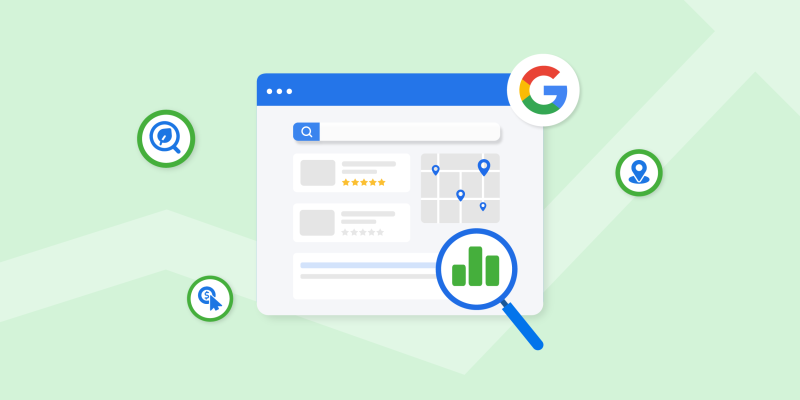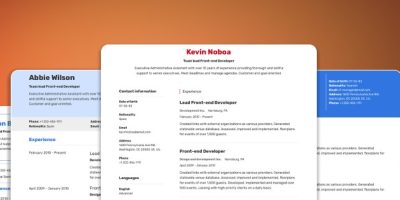In the highly competitive online space, achieving a top position in the SERPs (Search Engine Results Page) can feel like a never-ending race. The goal is simple, and that is to rank higher so that potential visitors find you before they find your competitors. With so many factors influencing organic rankings, from SEO practices to user experience, it can be challenging to know where to start. Here, we break down some effective strategies that can enhance your ranking, increase your visibility and attract your target audience.
- Understand Your Audience’s Search Intent
A strong foundation in search engine optimisation starts with understanding your audience and the intent behind their searches. Are they looking for quick answers, comprehensive guides or a specific product? Dive into the types of queries your audience uses and craft content that fulfills these needs. High ranking content is more than just keyword-heavy, it also needs to be relevant, informative and directly answers users’ questions. When your website aligns with search intent, search engines recognize this relevance and reward it with higher rankings.
- Optimise Visual Content Without Compromising Speed
Visual elements like images and videos can enrich the user experience, but they must be optimized to prevent slowing down your site. Use high-quality visuals that engage users, but compress files to ensure quick loading times. There are numerous tools out there that can help reduce image sizes without sacrificing quality. Striking the right balance keeps your site visually appealing while maintaining optimal speed, which is a significant ranking factor for search engines.
- Target the Right Keywords Effectively
Effective keyword use is central to good SEO. Instead of stuffing your content with keywords, aim for a strategic approach. Research the phrases your audience uses, also think of long-tail keywords that match their specific needs. Tools like Google Keyword Planner can offer insights into the phrases that resonate with your audience. Incorporate these naturally into your content, headers, meta descriptions and URLs where appropriate to help search engines understand the focus of your page.
- Ensure Fast Loading Times Across Your Site
Nothing frustrates users more than a slow website, and search engines take note of this fact. To enhance loading speed, minimise large files, compress images and use caching. Regular testing with tools like Google PageSpeed Insights can help identify areas that need improvement. A faster site keeps users engaged and is favoured by search engines, positively influencing your ranking.
- Make Your Site Mobile Friendly
With most users browsing on mobile devices, a mobile responsive site is nonnegotiable in 2024. Search engines prioritise mobile-friendly sites in rankings, as they ensure a smoother user experience across devices. Your website should adjust seamlessly to various screen sizes, offering readable text, easy navigation and quick-loading media. Regular testing on different devices will ensure your site looks and functions well for all users, enhancing your appeal to search engines and users alike.
- Enhance Your Content with Quality Internal and External Links
Links are vital for SEO. Internal links (to other pages on your site) and external links (to reputable sources) help search engines understand the value of your content. Internal linking keeps users engaged, guiding them to explore related content, while external links boost your content’s credibility. Focus on quality over quantity, linking to valuable, relevant sources builds trust with both your readers and search engines, which can improve your ranking.
- Focus on User Experience (UX)
User experience (UX) is integral to SEO success. When visitors find your site easy to navigate and enjoyable to use, they’re more likely to stay longer. Clear calls to action, a clean design, and readable content all contribute to a positive experience. For a truly inclusive approach, adhere to web accessibility standards, ensuring your site is usable by everyone, including those with disabilities. A well-designed UX encourages engagement and signals search engines that your website is valuable.
- Boost Traffic Through Social Media Engagement
Although social media engagement doesn’t directly affect SERP rankings, it can drive traffic to your site. Share your content on social media channels, and encourage followers to engage and share. Increased traffic signals search engines that your site is relevant and valuable, indirectly supporting your SEO efforts. Social media presence can expand your reach and create more opportunities for visitors to discover your content.
- Stay Updated with SEO Trends and Algorithm Changes
SEO is always evolving, with search engines frequently updating their algorithms. Staying informed about these changes helps you adapt and maintain your ranking. Tools like Google Analytics and Google Search Console allow you to track your performance and adjust your SEO tactics as needed. SEO requires ongoing learning and flexibility, so keep up with industry news to stay competitive.
It’s An Ongoing Process
Ranking high on SERP isn’t a one-time task, it’s most definitely an ongoing process that blends SEO best practices with an emphasis on user experience and website security. Following these steps can help make your site more visible to search engines and attractive to visitors. Remember, achieving a high SERP ranking is about consistency and adaptability. Keep refining your strategy, and the results will follow as you build a website that appeals to both search engines and users.












Comments